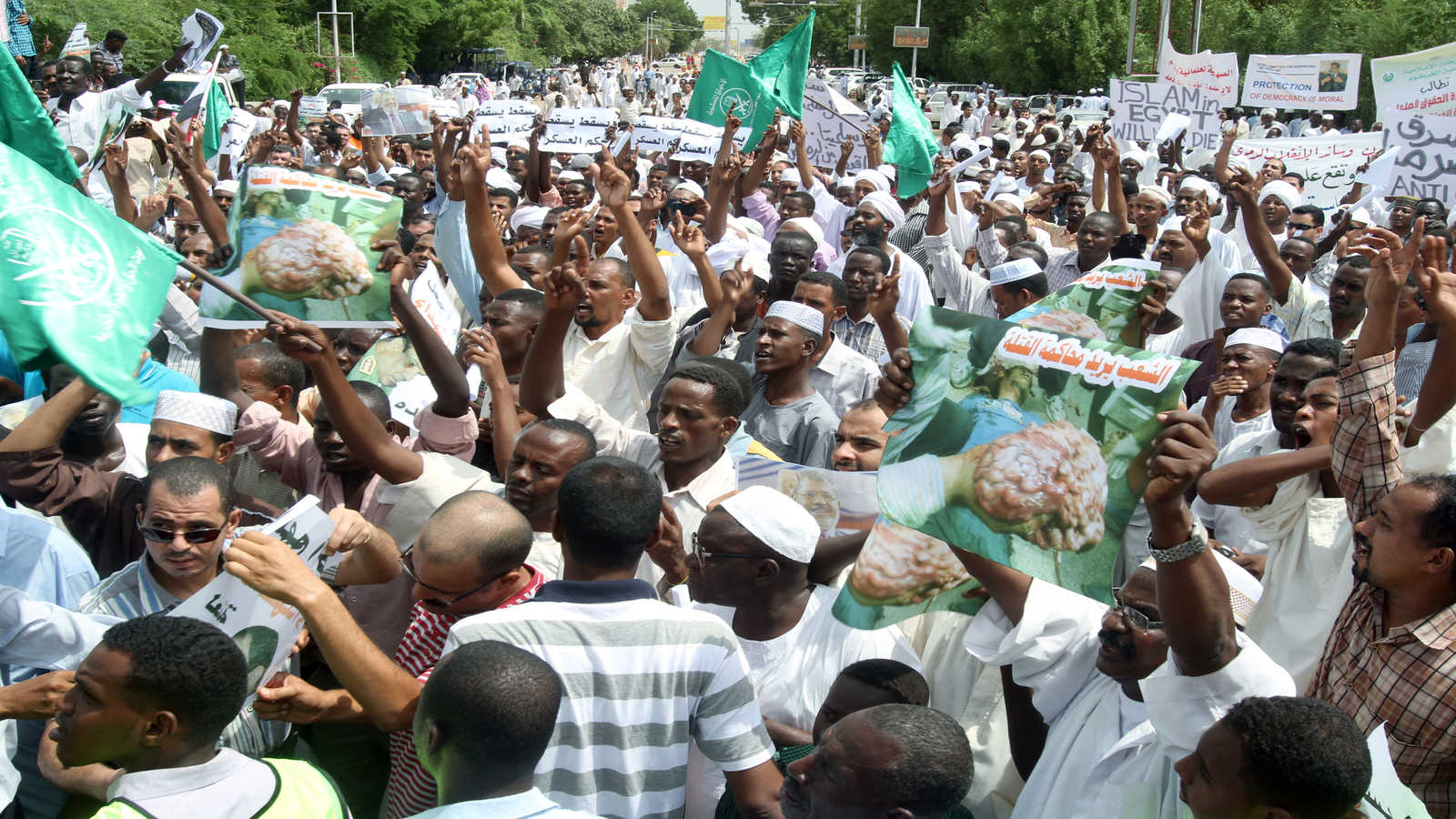Egypt sent a missionary convoy of imams and preachers to several Sudanese regions, most notably the Darfur region, where protests and violence broke out amid accusations by the Sudanese government that the Muslim Brotherhood and members of ousted Sudanese President Omar al-Bashir’s regime were behind them.
Egypt is actively supporting Sudan in fighting the Muslim Brotherhood and its ideology, as the Egyptian Ministry of Endowments, in coordination with its Sudanese counterpart, sent a convoy of imams and preachers to Sudan on Feb. 4, specifically to the Darfur region, where protests and acts of violence have recently broken out.
On Feb. 10, protests, acts of violence, and looting broke out in the regions of north Darfur, west Darfur, east Darfur and north Kordofan. The Sudanese transitional government accused supporters of ousted Sudanese President Omar al-Bashir and Muslim Brotherhood members of fueling those protests and spreading their ideology in the region. Sudanese authorities consequently launched a crackdown against figures affiliated with the former regime and the Brotherhood.
On Jan. 23, the Sudanese authorities shut down 131 Muslim Brotherhood-linked associations in south Darfur, accusing them of receiving foreign funds to support terrorist activities, inciting violence and spreading extremist ideology in the region.
As part of efforts to counter extremist ideology and the influence of the Brotherhood in the region, the states of the Darfur region welcomed the Egyptian missionary convoy to spread moderate thought and fight extremism.
Ashraf Fahmy, secretary-general of training at the Egyptian Ministry of Endowments and head of the Egyptian imams delegation to Sudan, revealed the convoy’s objectives during a press conference upon arrival, saying, “The Egyptian convoy — in cooperation with the imams of Sudan — is working to spread enlightened thought, reject division, violence and extremism, and focus on the issue of preserving the homeland and protecting its national institutions.”
On Feb. 5, Fahmy delivered a Friday sermon at the Nyala Mosque in the state of south Darfur on the need to promote tolerance among people and reject tribalism.
The missionary convoy organized a training course Feb. 6 for Egyptian and Sudanese female preachers in north Darfur, which dealt with extremist ideology among Sudanese citizens.
Egyptian Minister of Endowments Mohamed Mokhtar Gomaa said in a Feb. 14 press statement, “The convoy was very welcomed by the Sudanese, as it had a role in supporting cooperation in spreading moderate thought and combating extremism. The goal is to spread moderation, confront terrorism and put an end to what is happening in Egypt and Sudan.”
Religious cooperation between Egypt and Sudan has improved since the Sudanese revolution that overthrew Bashir.
Sudanese Minister of Endowments Nasruddin Mufreh visited Egypt in December 2020. The Egyptian Ministry of Endowments and its Sudanese counterpart also organized a training course for Egyptian and Sudanese imams on Dec. 21, 2020, on the cooperation in combating extremism and confronting the ideologies of extremist groups and the Muslim Brotherhood in both countries.
The Egyptian parliament praised the results of the missionary convoy’s visit to Sudan, as the parliamentary African Affairs Committee issued a statement Feb. 13 calling on the Egyptian Ministry of Endowments to organize more religious convoys in Sudan to spread the enlightened moderate thought and confront terrorist and extremist ideologies.
Amani al-Tawil, director of the Africa program at Al-Ahram Center for Strategic Studies, told Al-Monitor, “The Darfur region in Sudan suffers from the spread of extremist ideology and jihadist movements and the proliferation of arms, especially in light of armed clashes between the [locals] in the region and [supporters of] the Bashir regime, the high poverty rate and the Brotherhood’s power there.”
She said, “Egypt is working to assist the Sudanese government in fighting Brotherhood and extremist ideology, especially in the Darfur region, by sending convoys and organizing training courses for Sudanese imams on dealing with the Brotherhood’s ideology.”
Tawil noted, “Fighting extremism in Sudan is a strategic goal for Egypt because the turmoil and acts of violence caused by the Brotherhood affect the security of Egypt that shares borders with Sudan.”
She added, “More Egyptian missionary convoys must be sent to Sudan in addition to supporting the new Sudanese government in eradicating poverty in the Darfur region.”
In a Feb. 15 press statement, Fahmy said, “The Egyptian missionary convoy that headed to Sudan achieved all its desired goals of promoting the common interests between the two countries on the religious level.”
Fahmy continued, “The convoy also aimed to spread enlightened thought, to support common interests and strengthen Egyptian relations with neighboring countries. The Sudanese show great participation and positive interaction with Egyptian imams and preachers, in terms of exchanging experience and information.”
Sherif el-Gabaly, head of the parliamentary African Affairs Committee, told Al-Monitor, “Egypt has a unique experience in confronting the Muslim Brotherhood’s narrow-minded ideology, and this is why Sudan wanted cooperation to confront extremism.”
He said, “The Egyptian missionary convoy targeted the Sudanese regions where Brotherhood ideology is widely spread, and the Egyptian parliament encouraged the Ministry of Endowments to send such missionary convoys to other African countries.”
Gabaly noted, “Sudan is trying to cleanse its regions from the effects of the Muslim Brotherhood rule by spreading enlightened thought and removing all Brotherhood members from decision-making centers in conjunction with removing Sudan’s name from the list of terrorism. For this purpose, Egyptian President Abdel Fattah al-Sisi instructed all state institutions to support Sudan in achieving its legitimate goals.”
Gabaly concluded, “Cairo is cooperating with Sudan on the security and religious levels to put an end to the Brotherhood’s schemes because Egypt wants to preserve Sudan’s stability.”
 Eurasia Press & News
Eurasia Press & News



